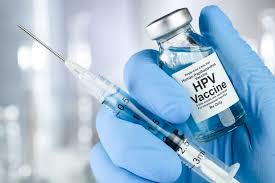Health officials in Murang’a are raising concern over a steep decline in the uptake of the human papillomavirus (HPV) vaccine among school-going girls, warning that the trend could erode gains already made in the fight against cervical cancer.
Recent data shows that in 2024, less than a quarter of eligible girls aged between 10 and 14 years received the HPV jab. Only 18.72 percent received the first dose (HPV1), while 27.43 percent completed the second dose (HPV2). This marks a significant drop from 2023, when uptake stood at 53 percent for the first dose and 37.31 percent for the second dose.
The decline has raised alarm because cervical cancer remains one of the leading causes of death among women in Kenya, despite being largely preventable through timely vaccination. The HPV vaccine is designed to protect against strains of the virus responsible for the majority of cervical cancer cases, making it one of the most effective preventive tools available.
Health experts attribute the falling numbers to widespread myths, misinformation, and hesitancy among parents. Unlike other childhood vaccines that continue to record high coverage, HPV vaccination has faced resistance in several communities. For instance, in Murang’a more than 80 percent of children received the pentavalent vaccine in 2024, and 76 percent were immunised against measles-rubella.
Officials stress that HPV prevention is equally critical, noting that the vaccine is safe, effective, and offers long-term protection. They are calling on parents, teachers, religious leaders, and community elders to support vaccination campaigns to ensure eligible girls are protected.
One common misconception is that HPV vaccination encourages early sexual activity among adolescents. Health practitioners emphasise that this is not the case the primary goal is to shield girls from cervical cancer later in life.
The National Vaccines and Immunisation Programme (NVIP) currently covers more than 14 childhood diseases, including polio, measles, malaria in selected regions, and rabies. The programme also provides specialised products such as anti-snake venom, with the overall aim of safeguarding present and future generations.
Officials warn that if urgent action is not taken to restore confidence in the HPV vaccine, progress in reducing cervical cancer risks may be undone. They are urging families in Murang’a and beyond to embrace the full package of vaccines offered under NVIP to protect children and communities from preventable diseases.

